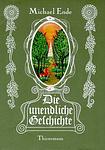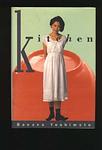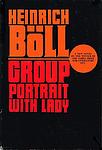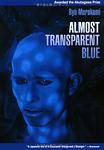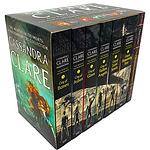The Greatest Japanese, German "Fiction" Books Since 1970
Click to learn how this list is calculated.
This list represents a comprehensive and trusted collection of the greatest books. Developed through a specialized algorithm, it brings together 291 'best of' book lists to form a definitive guide to the world's most acclaimed books. For those interested in how these books are chosen, additional details can be found on the rankings page.
Genres
Countries
Date Range
Reading Statistics
Click the button below to see how many of these books you've read!
Download
If you're interested in downloading this list as a CSV file for use in a spreadsheet application, you can easily do so by clicking the button below. Please note that to ensure a manageable file size and faster download, the CSV will include details for only the first 500 books.
Download-
1. The Wind-Up Bird Chronicle by Haruki Murakami
A man's search for his wife's missing cat evolves into a surreal journey through Tokyo's underbelly, where he encounters a bizarre collection of characters with strange stories and peculiar obsessions. As he delves deeper, he finds himself entangled in a web of dreamlike scenarios, historical digressions, and metaphysical investigations. His reality becomes increasingly intertwined with the dream world as he grapples with themes of fate, identity, and the dark side of the human psyche.
-
2. Perfume by Patrick Suskind
Set in 18th-century France, this novel tells the story of Jean-Baptiste Grenouille, a man born with an extraordinary sense of smell but no personal scent of his own. He becomes an apprentice to a prominent perfumer and learns to create the world's most intoxicating perfumes. However, his obsession with capturing the perfect scent leads him down a dark path, as he begins to kill young women to extract their scent. The book is a chilling exploration of obsession, identity, and the power of scent.
-
3. Never Let Me Go by Kazuo Ishiguro
The novel is a haunting tale of three friends, who grow up together at a seemingly idyllic English boarding school. As they mature, they discover a dark secret about their school and the purpose of their existence, which is to become organ donors for the rest of society. The story is a profound exploration of what it means to be human, the morality of scientific innovation, and the heartbreaking reality of love and loss.
-
4. Austerlitz by W. G. Sebald
The novel follows the story of Jacques Austerlitz, an architectural historian who was brought to England on a Kindertransport from Czechoslovakia during World War II. As an adult, Jacques embarks on a journey to uncover his past, including his original identity, his parent's fate, and his own lost history. The narrative is a haunting exploration of memory, identity, and the lasting impact of the Holocaust.
-
5. The Book Thief by Markus Zusak
Set in Nazi Germany during World War II, the novel follows the story of a young girl who finds solace in stealing books and sharing them with others. In the midst of the horrors of war, she forms a bond with a Jewish man her foster parents are hiding in their basement. The story is narrated by Death, offering a unique perspective on the atrocities and small acts of kindness during this period. The girl's love for books becomes a metaphor for resistance against the oppressive regime.
-
6. Anniversaries by Uwe Johnson
"Anniversaries" is a novel that provides a detailed account of a year in the life of Gesine Cresspahl, a German immigrant living in New York City with her young daughter. The narrative unfolds through daily entries, spanning from August 1967 to August 1968, intertwining the protagonist's present-day experiences with her traumatic past in Nazi and post-war East Germany. The novel explores themes of memory, identity, displacement, and the complexities of history, offering a nuanced perspective on the immigrant experience and the lasting impacts of historical trauma.
-
7. The Reader by Bernhard Schlink
"The Reader" is a poignant narrative centered around a young German boy's complex relationship with an older woman, who later turns out to be a former Auschwitz guard. Their relationship begins with her teaching him to read, but takes a drastic turn when she disappears, only to reemerge on trial for war crimes. The novel explores themes of guilt, shame, and redemption, as the boy, now a law student, grapples with his feelings for a woman he once loved, but whose past actions he cannot reconcile with.
-
8. Norwegian Wood by Haruki Murakami
Set in Tokyo during the late 1960s, the novel follows a college student as he navigates a complex love triangle while grappling with his own mental health and the societal pressures of the time. He's torn between his love for a beautiful but emotionally troubled woman and his growing feelings for a lively, outgoing classmate. As he confronts his past, present, and future, the narrative explores themes of love, loss, and personal growth.
-
9. The Neverending Story by Michael Ende
"The Neverending Story" is a captivating fantasy novel that follows the adventures of a young boy named Bastian. When he stumbles upon a mysterious book, he becomes engrossed in the magical world of Fantastica, where he must embark on a perilous quest to save the realm from destruction. As Bastian's imagination intertwines with reality, he discovers the power of storytelling and the importance of believing in oneself. This enchanting tale explores themes of courage, friendship, and the boundless nature of imagination.
-
10. The Rings of Saturn by W. G. Sebald
"The Rings of Saturn" is a richly detailed travelogue that follows the narrator's journey along the coast of Suffolk, England. The narrative weaves together history, literature, and personal anecdotes, exploring topics as diverse as the decline of the herring industry, the horrors of colonialism in the Congo, and the life of philosopher Sir Thomas Browne. The book is characterized by its melancholic tone, its digressive style, and its meditative reflections on memory, time, and decay.
-
11. The Lost Honour of Katharina Blum by Heinrich Böll
"The Lost Honour of Katharina Blum" is a story about a young woman who becomes the target of a media smear campaign after she falls in love with a man who is suspected of being a political radical. The media's relentless invasion of her privacy and the negative portrayal of her character lead to tragic consequences, highlighting the destructive power of sensationalist journalism. The novel is also a critique of the political climate in Germany during the 1970s.
-
12. The Emigrants by Winfried Georg Sebald
"The Emigrants" is a novel that explores the experiences and memories of four different emigrants, each with a unique and complex history. The narrative primarily focuses on the psychological impact of displacement and the haunting nature of the past. The author delves deep into their lives, revealing their struggles with identity, loss, and the persistent influence of their roots. The narrative is interwoven with historical events, photographs, and other documents, creating a rich tapestry that blurs the line between fact and fiction.
-
13. The Twilight Years by Sawako Ariyoshi
"The Twilight Years" is a poignant story revolving around the life of a middle-aged woman who is burdened with the responsibility of taking care of her ageing and ailing father-in-law while trying to balance her work and personal life. The novel explores the themes of old age, family responsibilities, societal expectations, and the struggles of women in a patriarchal society. It offers a critical examination of the social, cultural, and personal issues related to aging and care-giving in post-war Japan.
-
14. A Wild Sheep Chase by Haruki Murakami
A Wild Sheep Chase follows the story of a recently divorced advertising executive in Tokyo who is given a mysterious assignment by a sinister, powerful man: to find a particular sheep with a star-shaped birthmark. This mission leads him to travel across the snowy landscapes of Northern Japan, crossing paths with peculiar characters, and exploring themes of loneliness, fate, and identity. The narrative is a blend of detective story, postmodern critique, and surreal journey, infused with the author's unique style of magical realism.
-
15. The Box Man by Kobo Abé
"The Box Man" is a surreal narrative about a man who chooses to live as a homeless individual, inside a box, in Tokyo. The protagonist, a former doctor, narrates his experiences and observations from within the box, and the narrative often blurs the line between reality and hallucination. The book is a philosophical exploration of identity, anonymity, and the nature of existence, challenging the reader's perception of what it means to be an individual in society.
-
16. Kafka On The Shore by Haruki Murakami
"Kafka On The Shore" is a surreal and philosophical novel by Haruki Murakami that follows two parallel storylines. The first is that of Kafka Tamura, a 15-year-old boy who runs away from home to escape an Oedipal prophecy and searches for his missing mother and sister. The second storyline follows Nakata, an elderly man who has lost his memory but possesses the ability to communicate with cats. As their paths converge, they encounter strange and mystical events that challenge their perceptions of reality and identity. The novel explores themes of fate, free will, and the human psyche, and is a captivating and thought-provoking read.
-
17. Momo by Michael Ende
"Momo" by Michael Ende is a captivating tale about a young orphan girl named Momo who possesses an extraordinary ability to listen and understand people. Set in a town plagued by time thieves, Momo's unique gift becomes crucial as she embarks on a quest to save the community from losing their most precious possession: time. With the help of her loyal friends, Momo must confront the enigmatic Men in Grey and their sinister plan to rob people of their time, teaching readers the importance of cherishing the present moment and the power of human connection.
-
18. Hard-Boiled Wonderland and the End of the World by Haruki Murakami
In this novel, two parallel narratives intertwine, one following a data encryptor in a dystopian, futuristic Tokyo who becomes embroiled in the machinations of a mysterious scientist and his granddaughter, the other set in a surreal, dreamlike town where a man is tasked with reading old dreams from unicorn skulls. As the story progresses, it becomes evident that the two worlds are connected in a profound and unsettling way, leading to a shocking conclusion that explores themes of consciousness, identity, and the nature of reality.
-
19. Kitchen by Banana Yoshimoto
The book is a poignant tale of love, life, and loss intertwined with the themes of food and kitchens. The narrative follows a young woman who, after the death of her grandmother, finds solace in the home of her friend and his transgender mother. As she navigates her grief, she also grapples with her growing feelings for her friend. The story explores the complexities of relationships, the concept of home, and the healing power of cooking.
-
20. Akira by Katsuhiro Otomo
Set in a post-apocalyptic Neo-Tokyo, this graphic novel follows the lives of two teenage friends, Tetsuo and Kaneda, who are members of a biker gang. After a motorcycle accident, Tetsuo develops telekinetic abilities and is taken by the military, which fears his growing powers might unleash another cataclysmic event similar to the one that destroyed Tokyo years earlier. As Tetsuo's powers spiral out of control, Kaneda, along with a group of rebels and psychics, must try to stop him and uncover the secrets of a mysterious entity known as "Akira," which is at the heart of the government's experiments and the city's destruction. The narrative explores themes of power, corruption, and the quest for identity against a backdrop of cyberpunk visuals and intense action.
-
21. Group Portrait with Lady by Heinrich Böll
This novel delves into the life of Leni Pfeiffer, a resilient woman surviving in post-World War II Germany. Through the eyes of an unnamed narrator, the story unravels Leni's life, her relationships, and the socio-political climate of the time. The narrative is presented as a group portrait, with each chapter focusing on different characters who have been part of Leni's life, highlighting the hardships and resilience of everyday people in the aftermath of war.
-
22. 1Q84 by Haruki Murakami
The novel is a complex and surreal narrative that intertwines the lives of two protagonists: a woman assassin who becomes embroiled in a mysterious and dangerous cult, and a male writer caught in a complicated love triangle. As they navigate their respective challenges, they unknowingly cross into an alternate reality, referred to as 1Q84, where the lines between fact and fiction blur. The novel explores themes of love, fate, and the power of the individual against the constraints of a conformist society.
-
23. Almost Transparent Blue by Ryū Murakami
The novel is a vivid and disturbing exploration of the lives of a group of young people living in a Japanese port town in the 1970s. They are involved in a hedonistic lifestyle, filled with sex, drugs, and rock and roll, as they aimlessly drift through life. The protagonist, a former student, serves as the narrator, describing the group's experiences in graphic detail, revealing a bleak picture of a generation lost in the aftermath of the post-war economic boom. The narrative's raw and unflinching portrayal of the underbelly of Japanese youth culture is underscored by themes of alienation, self-destruction, and the search for meaning in a chaotic world.
-
24. Patterns of Childhood by Christa Wolf
"Patterns of Childhood" is a semi-autobiographical novel that explores a woman's struggle to reconcile her past as a member of the Hitler Youth in Nazi Germany with her present as a writer in East Germany. The protagonist uses her memories, dreams, and conversations with her brother to confront her guilt and shame over her involvement in the Nazi regime. The narrative shifts between past and present, creating a complex and layered exploration of guilt, memory, and the process of coming to terms with a traumatic past.
-
25. Cassandra by Christa Wolf
The novel is a retelling of the Trojan War from the perspective of Cassandra, the doomed prophetess and daughter of Priam, the king of Troy. Through her eyes, we experience the final days of the legendary city and her own tragic fate. The narrative delves into themes of power, feminism, and the role of women in history and myth, as Cassandra reflects on her life, her prophetic gift that was both a blessing and a curse, and the events leading up to the city's downfall. Her internal monologue provides a poignant and introspective examination of human nature, war, and the often-unheard voices of women in the shadow of great historical narratives.
Reading Statistics
Click the button below to see how many of these books you've read!
Download
If you're interested in downloading this list as a CSV file for use in a spreadsheet application, you can easily do so by clicking the button below. Please note that to ensure a manageable file size and faster download, the CSV will include details for only the first 500 books.
Download







